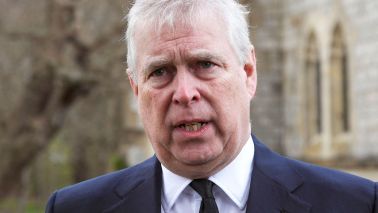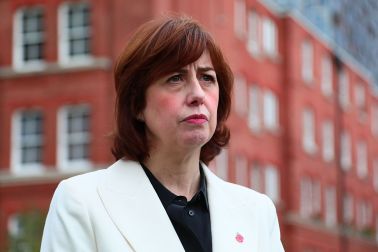I am a football fan. Each fortnight I go to watch my club and, like the overwhelming majority of the football–supporting community, I do so peaceably, giving offence or threat to nobody. Sometimes I take boiled sweets. At halftime I might enjoy a chicken balti pie and a glass of lager. I do not lamp opposing supporters over the head with a bottle, or chase them around the back streets of the local area screaming: ‘I’m going to open you up like a can of peaches.’ Only a tiny minority of the football-supporting community do things like that, and so I am disinclined to consider them football supporters at all. I am aware, of course, that they are football supporters and that their motivation for the violence they wreak devolves directly from the game of football, by way of a fundamental antipathy to people who support a different team, especially Crystal Palace. It may be that I too possess some of that antipathy, but I do not act upon it. I keep it to myself and, of course, abhor the violence that takes place.
We are a vulnerable community, much maligned, despite the fact 99 per cent of us are blameless individuals who wish simply to spend a Saturday afternoon shouting ‘You fat bastard’ at, say, Steve Bruce. And yet the media persists in linking us with that tiny minority, the ones who make the news through their discourtesy to opposing fans. I have compiled a study of 10,000 incidences of violence taking place as a consequence of football matches and have found that, without exception, the press and broadcast media refers to these assaults as ‘football related’, using terms such as ‘football hooligans’ and ‘Millwall-supporting thugs’. Further, when photographs are shown of the perpetrators of these degenerate acts, they are invariably displayed in a football setting, perhaps cheering from the stands or making their way to the ground or wearing their team’s colours. This is injurious to the wider football-supporting community and leaves us open to contempt and victimisation.
I will be forwarding my study to the House of Commons along with suggestions to end what I consider to be hate speech, nothing less, against my community. First, when reporting acts of football-related violence, the word ‘football’ should never be used. To do so constitutes hate speech against football fans. Nor should the word ‘fans’ be used because, as I see it, they are not ‘fans’, even though they say they are. Photographs of miscreants should be used only when no connection can be made between said photograph and the act of watching football matches.
As a template, I would suggest that if a disturbance takes place between, say, Millwall and Gillingham fans at London Bridge station, the reporter should confine him (or her) self to simply stating: ‘Some overweight middle-aged men kicked the heads in of some other overweight middle-aged men while waiting for a train at London Bridge station.’ You will note that I have not reported precisely what trains the overweight middle-aged men were intending to board — i.e. the 17.15 to Gillingham — as this too could lead people to work out that it was something to do with football. This will avoid the wider public casting the usual aspersions upon the wholly innocent Millwall and Gillingham fans who committed no violence but merely shouted good-natured abuse across the train tracks, such as ‘You can shove your lucky heather up your arse’ and other perhaps questionable Roma-related epithets.
I am wholly confident that parliament will seriously consider my recommendations, much as it is now seriously considering an almost identical series of demands from the Muslim Council of Britain’s Centre for Media Monitoring. It has studied more than 10,000 reports in the mainstream media about Muslims and finds that quite a few contain negative connotations, often to do with people blowing themselves up and stuff. This is evidence of ‘the seriousness of Islamophobia’ within the British media, apparently. In particular, the report’s authors got very worked up about the ‘repeated’ use of an image of Westminster Bridge terrorist Khalid Masood next to the Kaaba in Makkah — Islam’s holiest site and a place of pilgrimage — which ‘subconsciously links Muslim practice to terror and terrorism’.
I have to say, it doesn’t do it subconsciously for me. I think I’m pretty conscious when I link the faith of Islam with the murders Masood carried out in its name. Old Khalid may have got the wrong end of the stick about Islam and it is rather every bit as peaceable as the Muslim Council of Britain insist it to be. In which case, one might argue, quite a few have got the wrong end of the stick, including the governments of several Islamic countries.
Luckily, the MCB is winning the argument with some ease. The BBC Ten O’Clock News led a bulletin on the investigation into Masood’s rampage at Westminster Bridge, and during the course of seven minutes of reportage, the words ‘Muslim’, ‘Islam’ and ‘jihadi’ were entirely absent. We were not told the motive for the attack, nor anything about Masood’s background. As a news report, then, it lacked a little of what we might call journalistic curiosity — but at least it managed to avoid falling foul of the charge of Islamophobia and thus hate speech.
To link Masood with Islam, to say he is a Muslim, is — by the MCB’s definition — Islamophobic and thus a hate crime. To not do so, meanwhile, is to my mind an outright denial of reality. But we are accustoming ourselves to denying reality on an almost daily basis these days, so I suppose one shouldn’t be surprised.







Comments